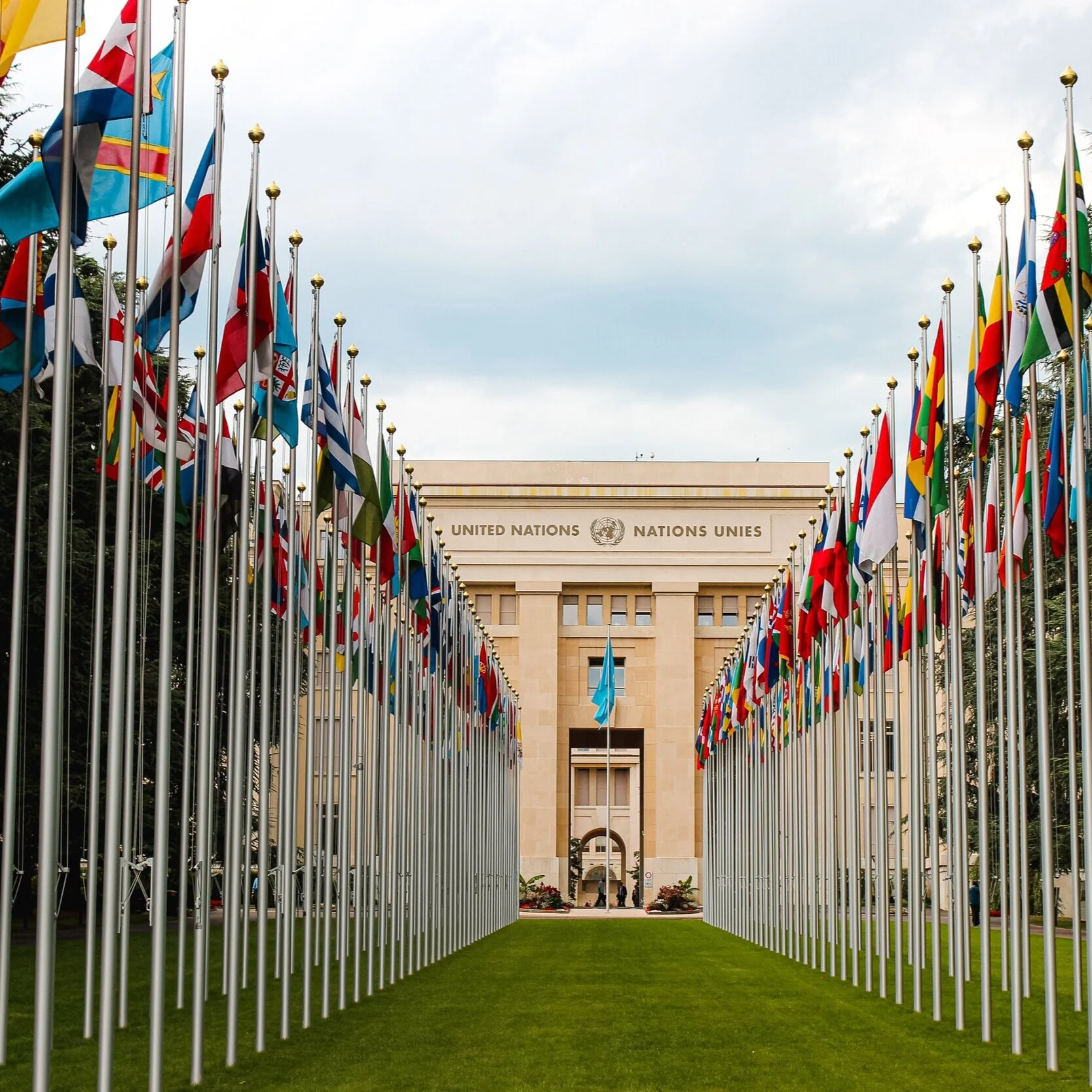The After iGEM Delegate Program
An opportunity for iGEMers to immerse themselves in the world of policy
by Ana Sifuentes
After iGEM Delegates at the Convention on Biological Diversity 2018
International policy is a living document. It is created through dialogue and is a testament of what cooperation between countries can achieve. Policy makers, delegates, government officials, and stakeholders work together to create global guidelines and regulations with the input of non-profit organizations, academics, and scientists. All share a common goal of properly regulating the use of new technologies without limiting research. This type of regulation makes it possible for the global community to share the benefits of synthetic biology to create a better world.
The After iGEM Delegate Program gives iGEM students and alumni the opportunity to attend key international meetings and be part of the global conversation on synthetic biology. iGEM is the largest community of synthetic biologists in the world, and consists of some of the most confident, talented, and motivated young minds in the field. Because emerging technologies in general, and synthetic biology in particular, have become main agenda topics at United Nations Conferences, it is important to encourage young scientists to join these international policy debates and engage directly with policy makers, government officials, and other stakeholders to advance contemporary discourse on synthetic biology.
In the three years since the program began, the After iGEM Delegate Program has sent official delegations to three United Nations (UN) events:
UN Biodiversity Conference of the Parties, held in Cancun, Mexico in December 2016
UN Biological Weapons Convention Meeting of States Parties, held in Geneva, Switzerland in December 2017
UN Biodiversity Conference of the Parties, held in Sharm El Sheikh, Egypt in November 2018
The UN Biodiversity Conferences, which are held every two years, serve to advance negotiations on the implementation of the Convention on Biological Diversity (CBD), an international treaty for the conservation of biodiversity, the sustainable use of the components of biodiversity, and the equitable sharing of the benefits derived from the use of genetic resources. Protocols adopted by the Conference of the Parties to the CBD include the Cartagena Protocol on Biosafety and the Nagoya Protocol on Access and Benefit Sharing.
The UN Biological Weapons Convention (BWC) Meeting of States Parties is held annually to advance discussions on the implementation of the BWC, a multilateral disarmament treaty that prohibits the development, production, acquisition, transfer, stockpiling and use of biological and toxin weapons. of the issues addressed in these international policy meetings do not have simple answers, and decision makers must consider economic, political, and technical differences between the signing parties. In discussions on synthetic biology, iGEM students and alumni are ideal candidates to attend meetings on international policy because of their practical experience. Through their participation in the iGEM competition, iGEMers have actively considered the impact of their projects and have worked with their local communities as part of their project design process. Moreover, these young scientists bring a unique voice to the conversation, enthusiasm to share their knowledge, and an eagerness to learn.
The After iGEM Delegates program adheres to the iGEM values of integrity, good sportsmanship, respect, honesty, celebration, cooperation, effort and excellence. As such, the iGEM Delegates seek to respectfully engage the meeting attendees, other delegates, and stakeholders on the topic of synthetic biology. Even if others’ views are opposed in the context of these discussions, through their work in iGEM, the iGEM Delegates have the skills to find a middle ground through cooperation.
To date, the After iGEM Delegates program has brought 14 iGEM students and alumni to international policy meetings, with broad regional representation and gender parity achieved.
Many of these Delegates have gone on to continue work and study on issues relevant to science and international policy:
Ediner Fuentes (CBD 2016) became part of his country’s official Delegation, he represented Panama in the Convention on Biological Diversity in 2018.
Pablo Vargas (CBD 016) is now pursuing a master’s degree in ETH Zurich.
Janis Schleusner, Chris Isaac, and Tessa Alexanian (all BWC 2017) are now crucial members of the iGEM Safety and Security Committee.
Tessa Alexanian (BWC 2017) is also an executive member of the iGEM Human Practices Committee and received the best new rookie judge award at the 2018 Giant Jamboree.
Ronit Langer (BWC 2017) was an invited speaker guest at the Geneva Dialogues on Securing our Common Future.
Reflections from the most recent class of Delegates who attended CBD 2018 can be found in the After iGEM Newsletter.
This year, the After iGEM Delegate program will continue with even more opportunities for iGEM students and alumni who wish to immerse themselves in the world of policy. Join the Delegate Program Interest Group to stay up to date with new opportunities!










